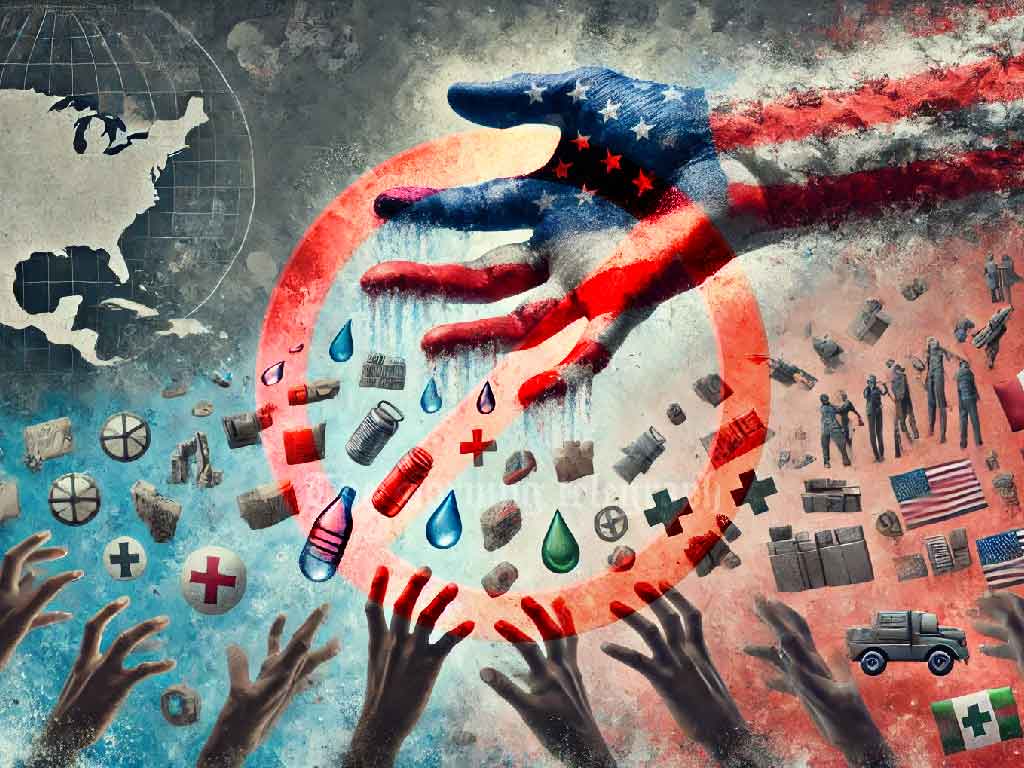
In an unprecedented move, the US State Department has ordered an immediate halt to nearly all foreign assistance programs, following President Trump’s recent executive order mandating a 90-day review of foreign aid. The internal memo, circulated to officials and US embassies worldwide, outlines a comprehensive pause on new aid disbursements and a freeze on ongoing programs, marking a dramatic shift in US foreign policy.
The United States, traditionally the world’s largest international aid donor, allocated $68 billion in 2023 across various global initiatives, including development, humanitarian, and military aid. This sweeping freeze affects a broad range of programs, with exceptions granted only for emergency food aid and ongoing military support for key allies Israel and Egypt.
According to the memo, “No new funds shall be obligated for new awards or extensions of existing awards until each proposed new award or extension has been reviewed and approved.” Furthermore, it mandates that US officials issue “stop-work orders” on existing contracts, halting aid activities worldwide until the review is complete.
Secretary of State Marco Rubio, tasked with overseeing the review, has emphasized that US foreign aid must directly benefit American interests, making the country “stronger,” “safer,” or “more prosperous.” The review, set to conclude within 85 days, aims to ensure that all aid programs align with these principles and are not redundant or ineffective.
The implications of this decision are vast. Former State Department official Josh Paul warned of a “potentially huge” impact on programs ranging from humanitarian de-mining operations to global health initiatives. “One can imagine, for example, humanitarian de-mining programs around the world suddenly being told to stop work. That’s a pretty big deal,” Paul remarked.
Dave Harden, former USAID mission director in the Middle East, described the decision as “very significant,” predicting immediate suspensions across critical development projects like water, sanitation, and shelter. “This isn’t just a regional pause—it’s global,” Harden noted, expressing concerns over the widespread ramifications of halting both new and existing contracts.
The freeze comes at a crucial time, particularly with the recent ceasefire between Israel and Hamas and ongoing humanitarian crises in places like Sudan and the Gaza Strip. Despite the urgency of these situations, only emergency food assistance has been exempted from the pause.
Additionally, the AFP news agency reported that this funding freeze might extend to Ukraine, potentially disrupting billions of dollars in military aid provided under former President Joe Biden. This move raises concerns among international partners and aid organizations about the continuity of support during critical times.
Rubio’s memo justifies the freeze by stating that it is currently impossible for the new administration to assess whether existing foreign aid commitments are effective, unduplicated, and consistent with President Trump’s foreign policy goals. “We must ensure that every dollar spent aligns with America’s strategic interests,” Rubio emphasized.
The State Department has yet to issue an official comment, leaving many questions unanswered about the future of US foreign aid programs and the impact this decision will have on global development and security.




